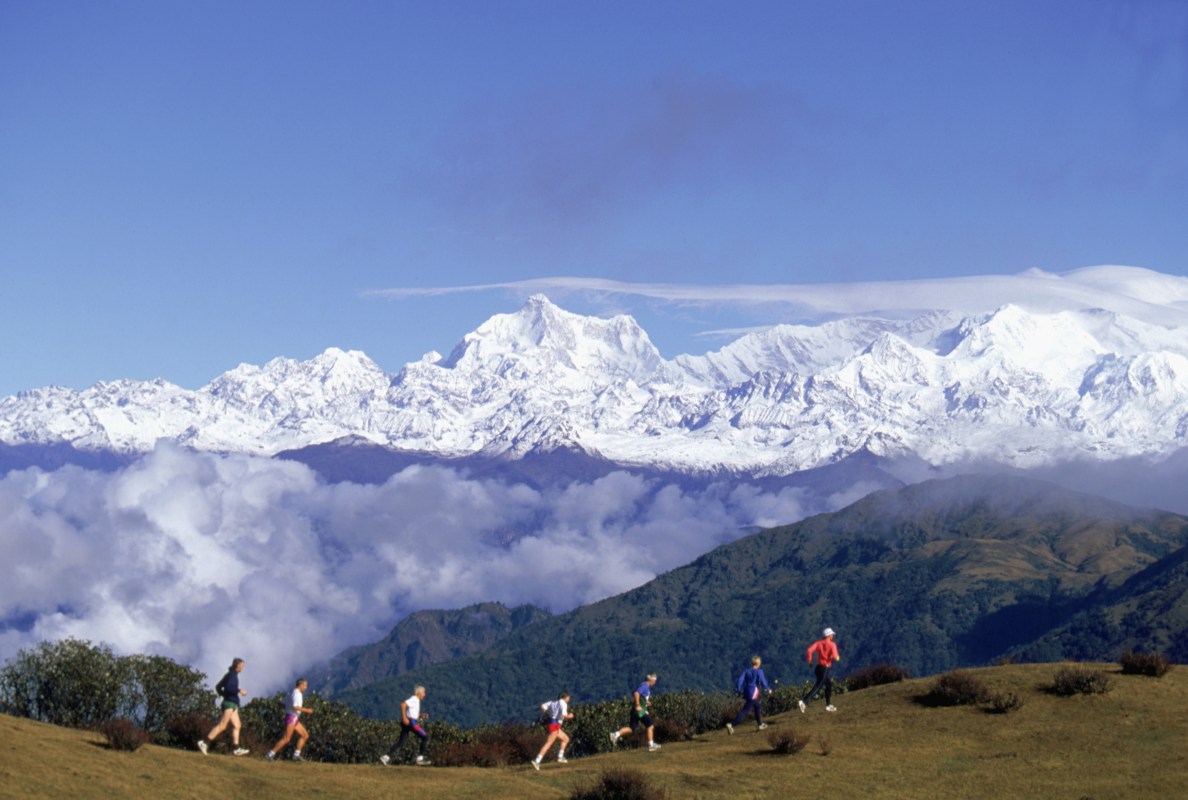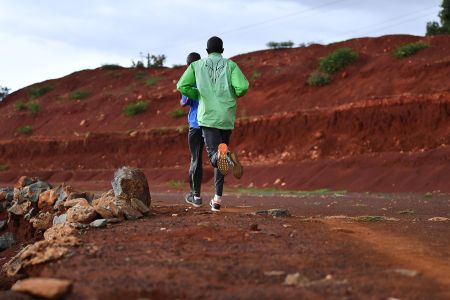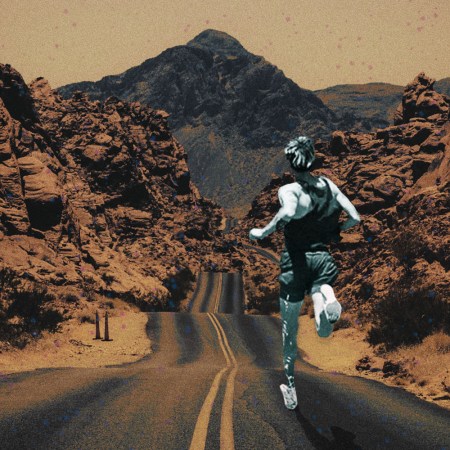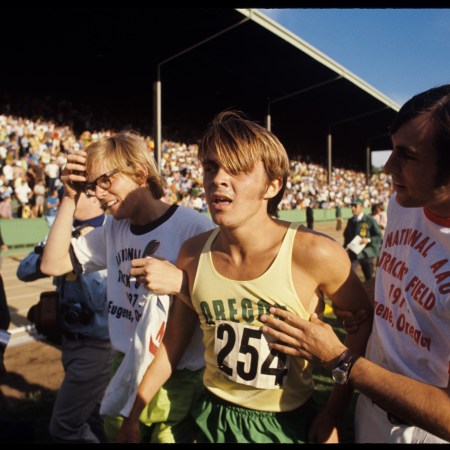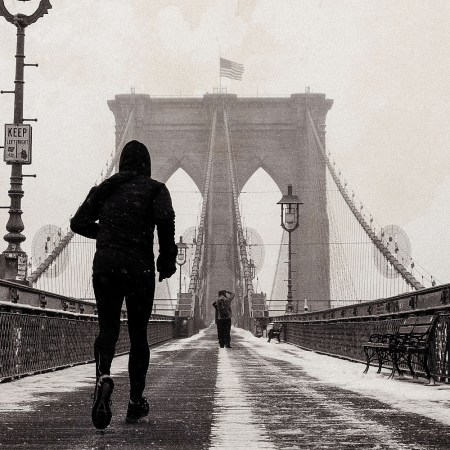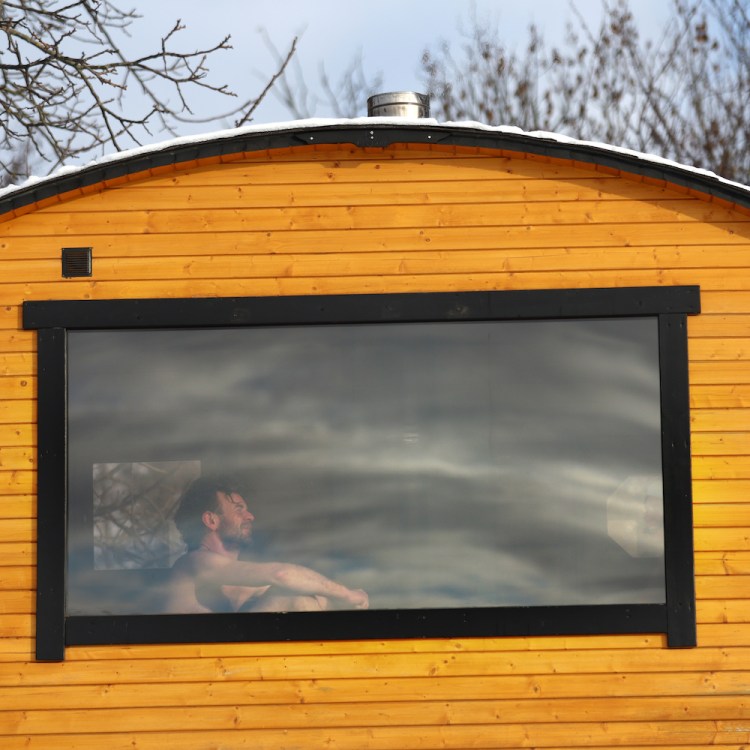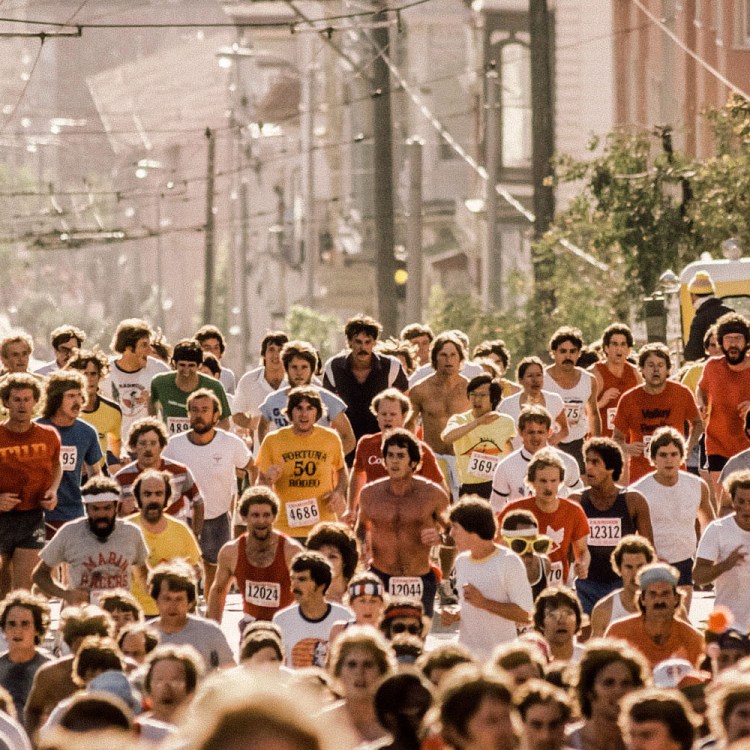Jocelyn Newman runs four to six times per week. She’s finished four marathons, reckons she’s logged more than 15 half-marathons and averages more than 80 miles a month. You’d expect her to be a Strava or Nike Run Club darling, with kudos and milestones and all sorts of online support in kind. Only, Newman doesn’t believe in mapping runs, neither with a GPS watch nor a smartphone. When she completes a four-miler, she has nothing to upload, and no app to upload to. It’s just done.
For many runners in the online sports community, this is mildly unthinkable. As the old saying goes: if a runner cranks a tempo run in the forest, and no one’s able to congratulate them on a post uploaded later, did it really happen?
But Newman looks at numbers all day. She’s a small business owner, the founder of a sustainable baby wear company called First Peak, and says that her life is “inundated” with figures. “[Everyday] I read about sales, likes, followers, etc.,” she says. “I see my runs as a time to look for an internal signal — rather than external — of how I’m feeling and performing.”
But without mapping or timing technology, how can she show up prepared on race day? Newman doesn’t really worry about it. “I avoid the desire to chase PRs or compete against myself by removing the temptation entirely,” she says. “The only time I get data on my pace is when I participate in formal races, which I still do on occasion. Beyond that, I go as fast as my body tells me I can on a given day.”
5 Lessons From the Running Capital of the World
Kenya’s training mecca prioritizes simplicity and recovery, above all elseRunning as Relief
Newman isn’t alone. While tracking apps deserve credit for catalyzing remarkable fitness journeys all over the world — Strava has added more than 60 million users in the last five years — there are some who’d rather not record every (if any) inch of that adventure. And though they can appreciate how robust and competitive the running community is, they don’t feel much desire to participate in it. For these purists, that would take the therapy out of the whole affair.
Marc Renson, owner of a coffee shop in Schenectady, New York, says he’s simply “not interested” in mapping his runs. “I’m not competitive,” Renson says. “I just want to enjoy the run. If I push myself or concentrate on running faster, it takes away the fun and the beauty of running. I love the silence. I love being inside my thoughts. Years back, when I didn’t run, I heard people say running is meditative. And I thought they were crazy. Now I understand.”
Renson says he uses this silence to appreciate the world around him, and as he’s a religious man, to “talk to God.” Bonnie Whitfield, a human resources director, uses her early-morning runs to commune with herself — four or five times a week, she’ll set out before work (either to a park or around the city streets near her home) and engage in what she calls her “personal practice.” “Running is about being present in the moment, feeling the wind on my face, the ground beneath my feet,” Whitfield says. “It’s not about the numbers or the likes. It’s a way to connect with my body.”
Others, like Adam Foster, a British ex-soldier who now rehabs patients with fibromyalgia, appreciate the sheer disconnect of it all. “Most of the running I’ve done throughout my life has been without music, phones or tracking devices,” he says. ” Running without any technological distractions is an opportunity for me to reconnect with something more basic and primal.”
This point was echoed amongst runners we spoke to — another said that when he runs, he gets to become a “feral human.” That might sound a little out there, but for many of these runners, needing to make sure that satellite discoverability is just right before you can start jogging down the road is the stranger status quo. We were born to run, right? Why complicate it?
What About Splits?
What about them, indeed. Even if you don’t have the desire to measure your progress against others online, or against past versions of yourself, isn’t it just plain helpful to know where a mile marker is? Or what pace you’re moving your body at? Isn’t it nice to know — especially as you come off a holiday or crawl back from an injury or get another year older — whether your fitness is where you’d like it to be?
Apparently, the answer is no. Three different runners we connected with enthusiastically talked about the “freedom” that a GPS-less running habit provides. They don’t have much interest in chasing down pacing information. Is it because they don’t think they can exercise self-control over the cascade of additional data that would suddenly be available to them? (Newman, after all, spoke of dodging the “temptation” around training for PRs or FKTs. Plus, many of these runners are reformed purists who once ran with the same gizmos the rest of the community cherishes.) Possible, though unlikely. The more accurate answer is that these runners are content with what they’ve got. Running is their mental health secret weapon, their daily emotional release, their chance to check out.
Of course, they all have an idea of what they’re running — they’ve run for too long not to, and besides, many of them still run in races. As Renson reports: “I’m 52, my pace is usually around 9:40pm, but I run faster in live races. I do about 9:15. It’s the adrenaline of being around other runners.” Still, he’s just as jazzed about the ephemera surrounding his running habit, as most would be about their explicit 5K time. The man certainly knows what he wants. “I’ll run on bike trails, on the side of the roads, on the beach, around a college track, on a treadmill,” he says. “But I will always go out of my way to run over a bridge. I love running over bridges. Love being at the water or over it.”
Jeremy Wachter, a search engine marketer, says he’s “very familiar with the canals, paths, trails and neighborhoods” in which he runs up to five miles at a time on dedicated running days. But he suggests a benefit to running without digital cues is he actually listens to his body. “I understand that some days, I’ll feel like a rockstar, and other days I won’t,” Wachter says. “Proper auto-regulation in exercise allows me to capitalize on the days that I feel great while not wrecking myself on the days that I don’t. This approach allows me to continue to make progress without leaving progress on the table or over-tapping my recovery resources. It’s a setup for long-term commitment to exercise.”
The Good Ole Days
Wachter’s perspective offers some offbeat insight into why Strava is so popular: the app takes out the guesswork. The alternative — what he’s describing — is really hard. It’s nice to listen to your body and perhaps have a better sense of days you should take it easy. But “running blind” (sans even an old Casio wristwatch) and having any clue what the hell you’re doing demands a tenuous combination of instinct and experience. It isn’t that advisable if you have lingering track dreams.
Still, the apps can interfere with a runner’s ability to fully process and honor what their body is giving them on a given day. This problem is only exacerbated when the satellite data is off, which happens all the time, making you think you’re running slower than you actually are. Somedays, you might go a lot harder than you should, simply because you’re trying to will better numbers out of your app — and potentially more kudos from your followers.
Is there a right answer here? There doesn’t have to be. It’s important to know yourself and what sort of runner you want to be. Keep in mind, not too long ago, there wasn’t even a decision to be made. In the old days of running, as Trevor Frayne remembers, you had to “drive the route with a car and see what the odometer tells you” in order to map out your run. He never got in the habit. And once the tracking apps came out, well, he liked his privacy.
Strava never made much sense to him, so why force it? “I’m showing my age but I started running in the 90s,” he says. “I kind of like my long, slow runs to be more free flow. Enjoying the outdoors, parks, trails, the weather. Sometimes stopping to do chin ups or dips on playground equipment. Even stopping to chat with people. It’s kind of like being more present in the runs and unplugging. Sometimes I wear a normal wristwatch. But interestingly enough, my long slow runs don’t really change pace whether I wear a watch or not.”
The Charge will help you move better, think clearer and stay in the game longer. Subscribe to our wellness newsletter today.
